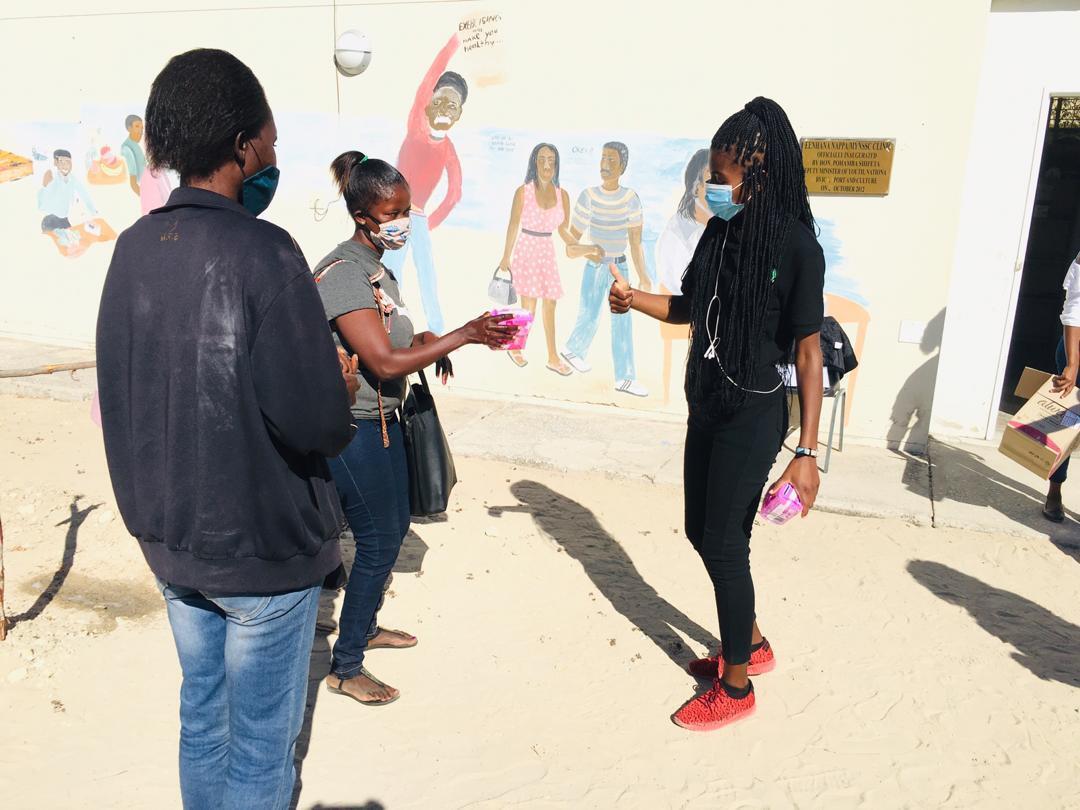EENHANA, Namibia - “I wish the distribution of free pads could be given more attention, like the distribution of free condoms,” says Cathy Mabuku, an 18-year-old girl from Eenhana, a town in northern Namibia’s Ohangwena Region.
Mabuku is one of the beneficiaries who received free menstrual pads distributed by the African Youth and Adolescent Network (AfriYAN) Namibia on the Menstrual Health and Hygiene (MHH) Day, 28 May 2020.
The MHH Day is an annual awareness day to highlight the importance of good menstrual health and hygiene management, commemorated the third time in Namibia. This year the commemoration was led by AfriYAN in collaboration with the Government of the Republic of Namibia, the United Nations Population Fund (UNFPA), and other UN agencies.
Menstrual health and hygiene are directly linked to the fulfillment of human rights, specifically such as health or education. It is also a matter of dignity. However, menstrual health is still a taboo in many communities and households in Namibia.
“I grew up with a male guardian, so I grew up not being free to talk about menstruation and I only had this talk with my aunties when they would visit. One would hardly hear such topics in the community,” recounts Mabuku.
The silence around menstruation leads to people not being able to be prepared for their first menstrual experience. Mabuku says that during her first period she was very scared and embarrassed to tell her guardian (who is a man) and had to improvise.
“I used cloth because I was shy to tell my uncle. The next day at school I told my Life Skills teacher about it and she gave me a pack of pads.”
Many Namibian adolescent girls rely on free sanitary pads distributed at their school but with the schools all shut to curb the spread of COVID-19, they no longer have access to them.
“Because of the outbreak of Covid-19, my uncle had to close down his cuca shop [bar], which was our only income, and my allowance had to stop. Luckily for me, I always bought an extra pack of pads, so I didn't suffer that much,” says Mabuku.
“I am very pleased about the MHH Day campaign and the distribution of free sanitary products. I think it is important especially for the disadvantaged girls in my community,” she further states.
To improve young girls’ access to sanitary products Mabuku has a suggestion: “It could be better if clinics or the community could establish centers where young girls could access free pads every month.”
UNFPA works to ensure every woman and girl can manage her menstruation in a dignified way. In Namibia, UNFPA is distributing dignity kits in collaboration with the World Food Programme (WFP) in six regions of the country. The dignity kits include sanitary pads, hand sanitizer, soap and dishwasher, and altogether 3500 Namibian women and girls have benefitted from them.
In addition, UNFPA and the United Nations Children's Fund (UNICEF) are jointly supporting the Government of Namibia to conduct a baseline study on knowledge, practices and challenges on menstrual health and hygiene in Namibia. The study will pave the way for better policies and programmes that will pay attention to the fundamental role that good menstrual health and hygiene management plays in enabling women and girls to reach their full potential.
UNFPA Namibia’s work on menstrual health is done as part of the Safeguard Young People Programme, funded by the Swiss Agency for Development and Cooperation, that is scaling up interventions touching on policy, integrated HIV and youth-friendly sexual and reproductive health services, sexuality education for in- and out-of-school youth as well as youth empowerment in Southern Africa.



